
Owerri: The Heartbeat of Eastern Nigeria
Owerri, the capital of Imo State, is a vibrant and culturally rich city in southeastern Nigeria. Known for its warm and welcoming locals, Owerri offers an authentic Nigerian experience. The city is often referred to as the entertainment capital of Nigeria, thanks to its bustling nightlife and numerous entertainment spots. A visit to Owerri is incomplete without exploring its many landmarks. The iconic Mbari Cultural and Art Center showcases traditional Igbo art and culture, providing a fascinating glimpse into the region's heritage. For nature lovers, the Oguta Lake offers a serene escape with opportunities for boating and picnicking. Owerri is also famous for its food scene. The city's markets and restaurants serve a variety of delicious local dishes, such as Ofe Owerri, a rich vegetable soup, and Nkwobi, a spicy cow foot delicacy. The friendliness of the residents and the city's lively atmosphere make it a must-visit destination in Nigeria.
Local tips in Owerri
- Visit the Mbari Cultural and Art Center to understand the local culture better.
- Try the local dishes like Ofe Owerri and Nkwobi for an authentic culinary experience.
- Take a trip to Oguta Lake for a peaceful day by the water.
- Explore the city's nightlife to experience its vibrant entertainment scene.
- Interact with the locals; they are friendly and love to share stories about their city.
Owerri: The Heartbeat of Eastern Nigeria
Owerri, the capital of Imo State, is a vibrant and culturally rich city in southeastern Nigeria. Known for its warm and welcoming locals, Owerri offers an authentic Nigerian experience. The city is often referred to as the entertainment capital of Nigeria, thanks to its bustling nightlife and numerous entertainment spots. A visit to Owerri is incomplete without exploring its many landmarks. The iconic Mbari Cultural and Art Center showcases traditional Igbo art and culture, providing a fascinating glimpse into the region's heritage. For nature lovers, the Oguta Lake offers a serene escape with opportunities for boating and picnicking. Owerri is also famous for its food scene. The city's markets and restaurants serve a variety of delicious local dishes, such as Ofe Owerri, a rich vegetable soup, and Nkwobi, a spicy cow foot delicacy. The friendliness of the residents and the city's lively atmosphere make it a must-visit destination in Nigeria.
When is the best time to go to Owerri?
Iconic landmarks you can’t miss
Rockview Hotel Owerri
Experience comfort and luxury at Rockview Hotel Owerri, your ideal base for exploring the vibrant culture of Imo State.

Dan Anyiam Stadium Owerri
Discover the pulse of Owerri at Dan Anyiam Stadium, a vibrant venue for sports and cultural events that showcases local pride and community spirit.

Old English Bar & Grills
Experience the perfect blend of local flavors and traditional hospitality at Old English Bar & Grills in Owerri.
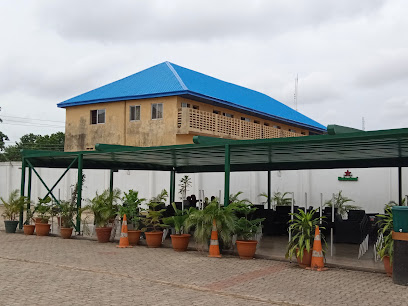
Titanic View Hotel
Discover the exquisite Titanic View Hotel in Owerri, where luxury meets comfort, offering a perfect retreat for travelers exploring Imo State.
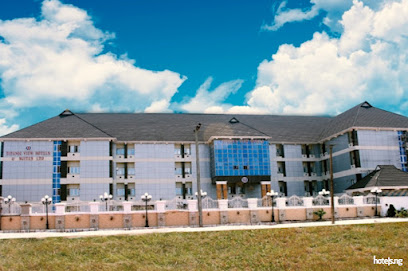
Mimi Place
Experience the vibrant culinary scene at Mimi Place in New Owerri, where local flavors meet international cuisine in a lively atmosphere.
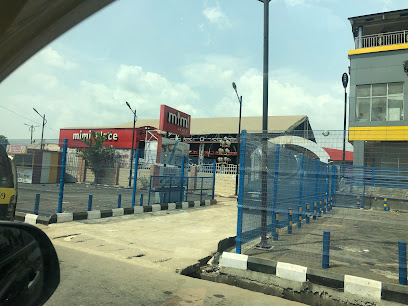
Icy Groove Creamery (iGroove)
Discover the sweet delights of Icy Groove Creamery in Owerri, where every scoop is a taste of happiness in a charming atmosphere.
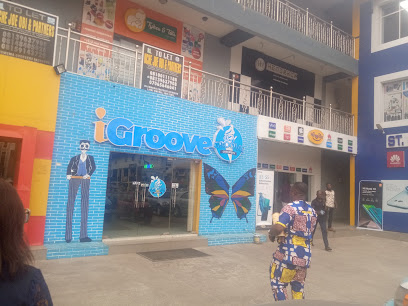
The Hive
Experience the vibrant flavors of Nigeria at The Hive, a top dining destination in Owerri, Imo State, offering a blend of local and international cuisine.
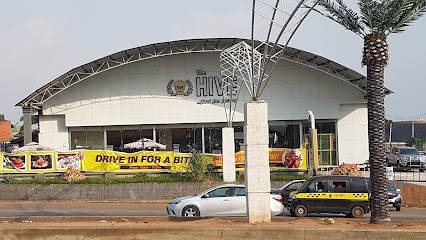
Hotel Ibis Royale, Owerri
Experience comfort and modern amenities at Hotel Ibis Royale in the heart of Owerri, your gateway to exploring Imo State's vibrant culture and attractions.
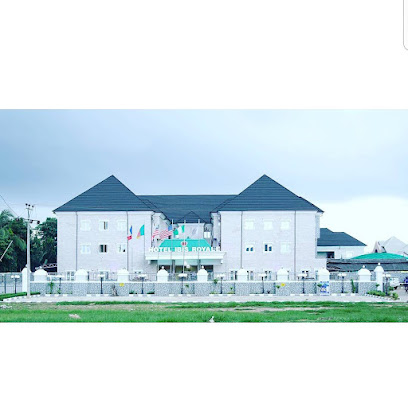
Toprate Luxury Hotel
Experience unparalleled luxury and comfort at Toprate Luxury Hotel in Owerri, where modern amenities meet warm hospitality for an unforgettable stay.

Akachi Monument
Discover the Akachi Monument in Naze, Imo, a striking sculpture symbolizing hope and resilience, embodying the spirit of the Nigerian people.
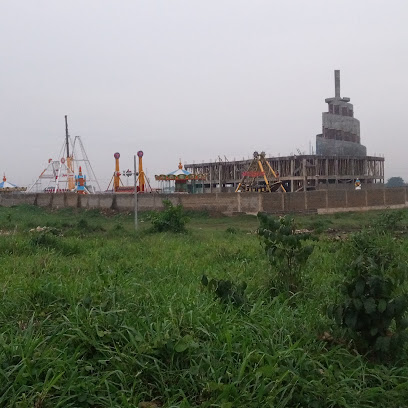
Chief Uwunna Recreational Park
Experience nature's tranquility at Chief Uwunna Recreational Park in Owerri, Imo State, a perfect spot for relaxation and outdoor activities.
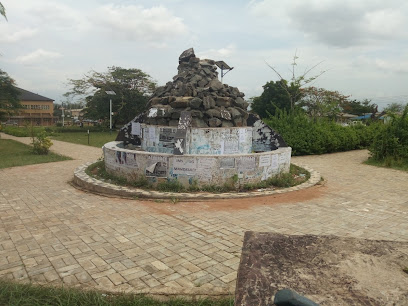
DREAM WORLD AMUSEMENT PARK
Discover endless fun and excitement at Dream World Amusement Park, the ultimate entertainment destination in Owerri, Imo State, Nigeria.
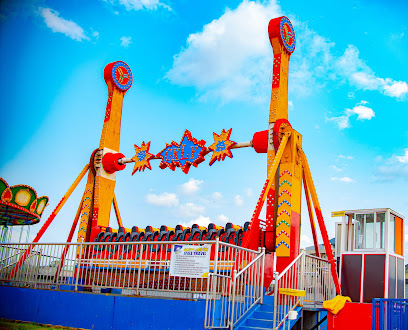
Satiate Restaurant Owerri
Discover the rich flavors of Nigerian cuisine at Satiate Restaurant, a culinary haven in Owerri that delights every palate.
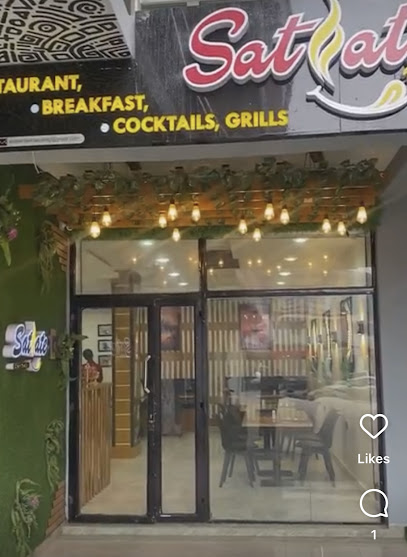
De Majestic Gardens Hotel Owerri
Discover comfort and luxury at De Majestic Gardens Hotel Owerri, a serene retreat surrounded by lush gardens and modern amenities in the heart of Imo State.
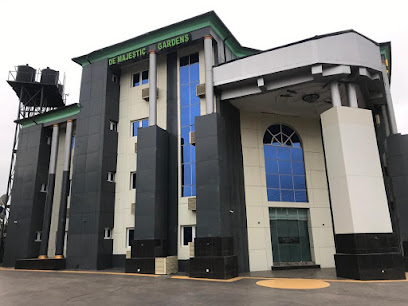
Landmark Event Center Owerri
Explore the vibrant Landmark Event Center in Owerri, a premier venue for conferences and entertainment showcasing the heart of local culture.
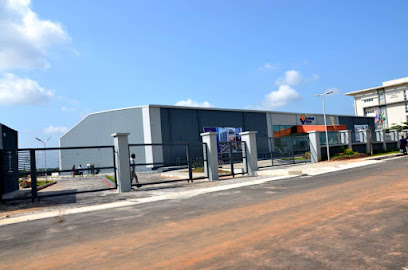
Unmissable attractions to see
Chief Uwunna Recreational Park
Explore the lush greenery and serene atmosphere of Chief Uwunna Recreational Park in Owerri, a perfect getaway for relaxation and outdoor fun.
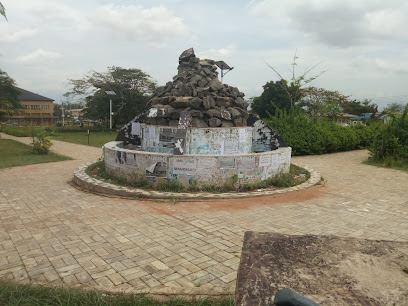
Eze Owerre-Ebeiri Ancient Palace
Discover the rich cultural heritage of Nigeria at Eze Owerre-Ebeiri Ancient Palace, a historical gem in Imo State showcasing traditional Nkwerre customs.

Kalamazoo Palace, Umuna, Orlu
Explore the vibrant culture at Kalamazoo Palace, a must-visit tourist attraction in Umuna, Orlu, celebrating the rich heritage of Imo State.

Ama nwaozuzu Junction
Immerse yourself in the tranquility and cultural richness of Ama nwaozuzu Junction Park, a serene escape in Iho, Imo State.
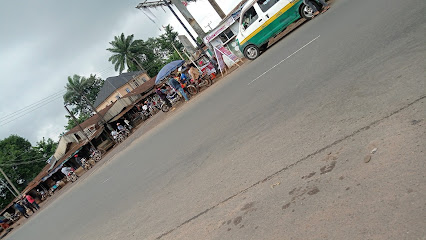
Abadaba Lake
Experience the tranquil beauty of Abadaba Lake, a hidden treasure in Imo State perfect for relaxation and cultural immersion.
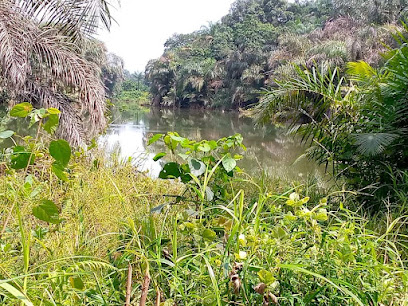
SPOTLITE GARDEN AND RESORT OWERRI
Experience tranquility and natural beauty at Spotlite Garden and Resort, a serene escape in Owerri, Nigeria, perfect for relaxation and memorable events.
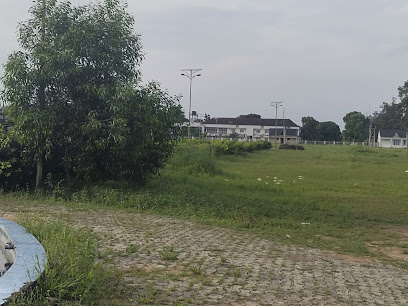
Freedom Fountain
Experience the beauty and culture of Owerri at Freedom Fountain, a serene oasis of art and relaxation in Nigeria's vibrant landscape.
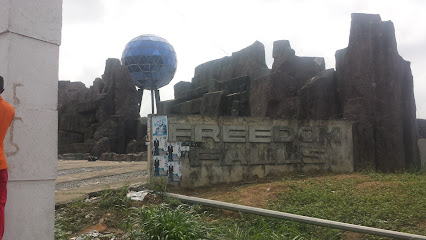
Park
Discover serenity in Naze Park, a scenic retreat in Imo State, Nigeria, perfect for relaxation, picnics, and nature walks.
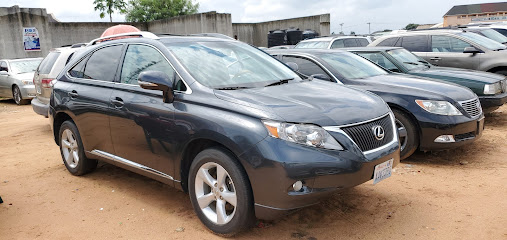
Sculpture Garden
Explore the Sculpture Garden in Owerri, where art meets nature in a tranquil setting, perfect for relaxation and inspiration.
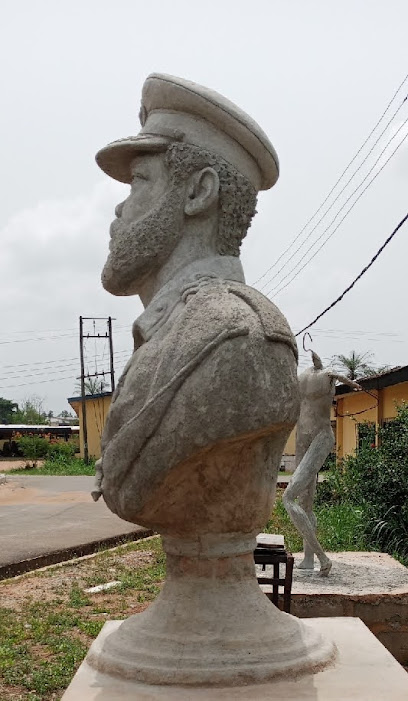
Frame enlargement
Unwind in the lush embrace of Ama Jk City Park, a nature lover's paradise in the heart of Imo State, Nigeria.
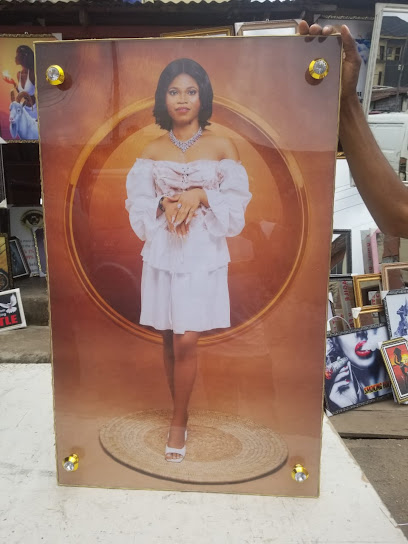
Gen-Chudo Events
Experience the serene beauty of Gen-Chudo Events, a tranquil park in Owerri, Imo State, perfect for relaxation amidst nature's splendor.

Chinwendu Akanihu
Experience the natural beauty and tranquility of Chinwendu Akanihu Park in New Owerri, a perfect spot for relaxation and family fun.

Valentine Ayiba Pkn Store
Discover Valentine Ayiba Park, a serene haven in New Owerri, perfect for relaxation, picnics, and a taste of local culture amid stunning natural beauty.

Silas Elemuo (Pk1/Blk10/No.7B)
Discover tranquility at Silas Elemuo Park in New Owerri, Abia, where lush greenery meets serene landscapes for an unforgettable escape.

Essential places to dine
Old English Bar & Grills
Experience the flavors of Owerri at Old English Bar & Grills - where tradition meets taste in a vibrant setting.
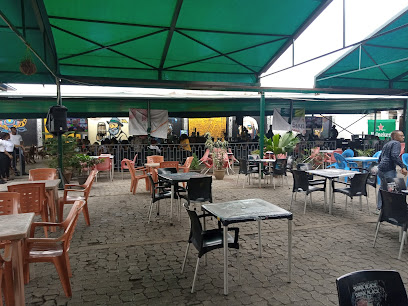
Kilimanjaro
Discover Kilimanjaro in Owerri - where fast food meets local flavor in a vibrant dining atmosphere.
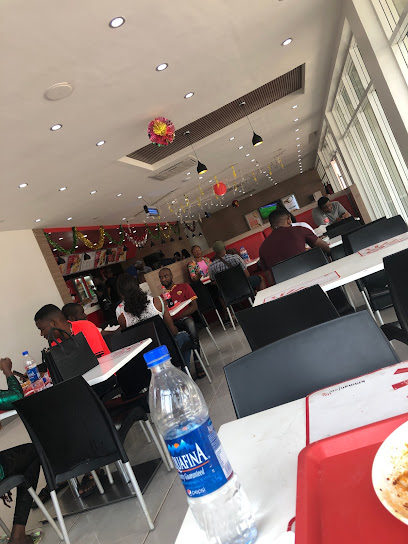
The Hive
Discover exquisite flavors at The Hive in Owerri - where local ingredients meet culinary creativity for an unforgettable dining experience.
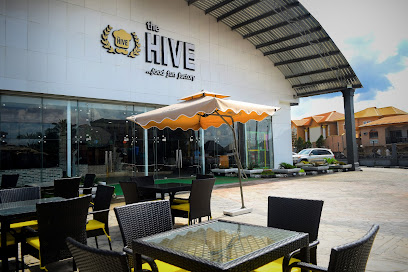
Kilimanjaro Restaurants
Experience the vibrant flavors of Kilimanjaro Restaurants in Owerri - your go-to spot for delicious fast food and breakfast delights.
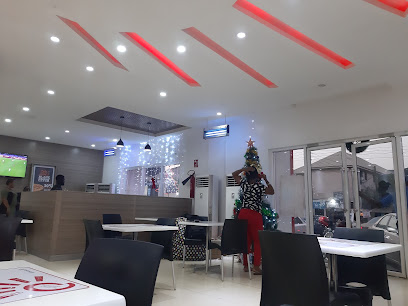
Sunic Foods
Discover delicious local cuisine at Sunic Foods in Owerri - where every meal is an unforgettable experience!
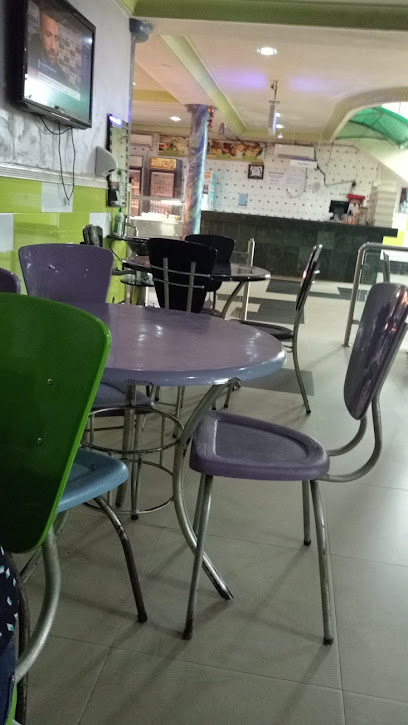
Hungry Man Restau. ant
Discover a delightful fusion of local flavors and fast food favorites at Hungry Man Restaurant in New Owerri, Imo State.
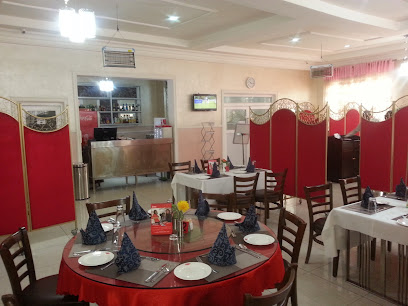
Satiate Restaurant Owerri
Discover exquisite dining at Satiate Restaurant in Owerri - where local flavors meet international cuisine in a warm atmosphere.
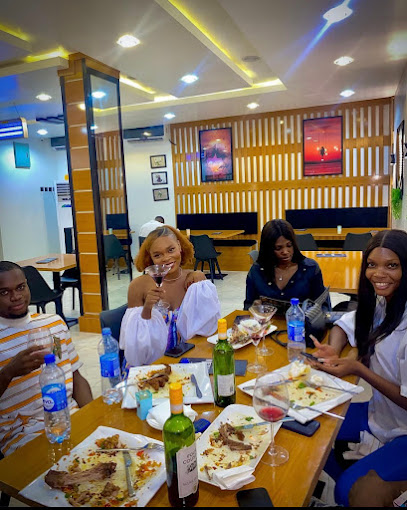
Delicious treat
Experience exquisite flavors at Delicious Treat in Owerri - your ultimate destination for delightful meals and vibrant atmosphere.
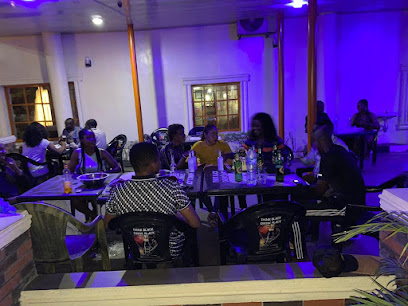
Joseph's pot
Discover authentic Nigerian flavors at Joseph's Pot in Owerri – where every noodle dish tells a story.
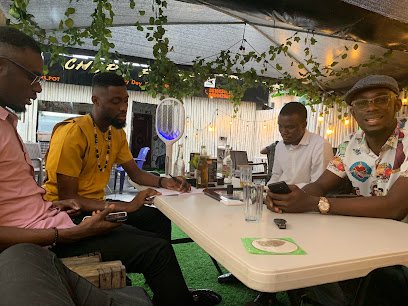
Amala Spot
Discover authentic Nigerian breakfast at Amala Spot in Owerri—a culinary delight filled with rich flavors and warm hospitality.
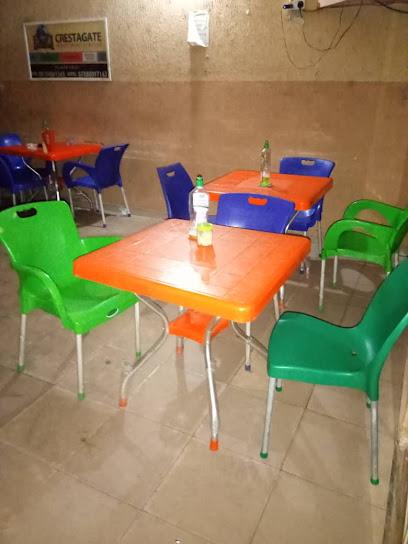
MAMA G RESTAURANT
Experience the vibrant tastes of Nigeria at Mama G Restaurant in Owerri - a must-visit for food enthusiasts seeking authentic local cuisine.
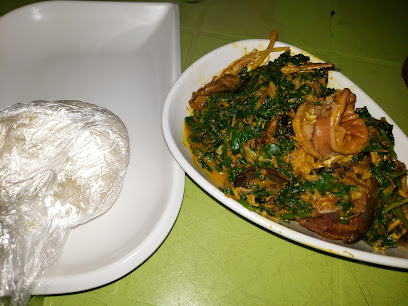
Best lady Resturant
Discover the essence of African cuisine at Best Lady Restaurant in Owerri, where every dish tells a story and hospitality meets flavor.
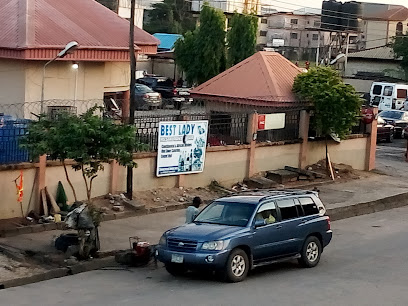
Old People's Home (Chizzy's Kitchen)
Discover the vibrant flavors of Owerri at Chizzy's Kitchen, your go-to breakfast spot for local delicacies and delightful international cuisine.
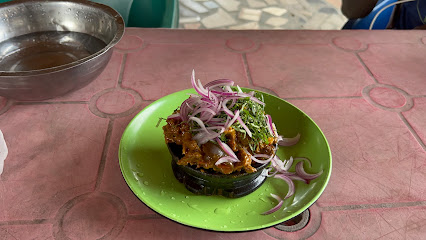
Black30 Restaurant
Experience authentic Nigerian cuisine at Black30 Restaurant in Owerri - a top destination for rice lovers seeking flavorful dishes.
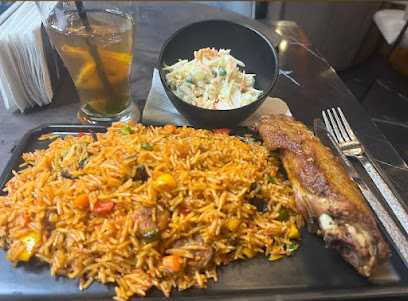
Tropical Village Bush Bar and Restaurant
Discover the vibrant culinary scene at Tropical Village Bush Bar and Restaurant in Owerri - where authentic flavors meet lively entertainment.
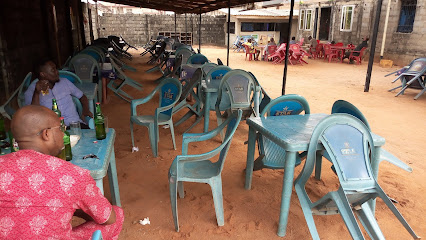
Markets, malls and hidden boutiques
Shoprite Owerri
Discover a diverse shopping experience at Shoprite Owerri, where convenience meets variety in Imo State's premier supermarket.
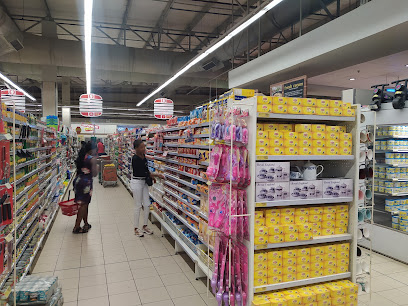
Owerri Mall
Experience shopping like never before at Owerri Mall, where local culture meets modern retail in the heart of Imo State.

Leedel Stores
Explore the vibrant flavors of Owerri at Leedel Stores, your local supermarket for fresh produce and unique culinary finds.

Ngelic Collections
Explore Ngelic Collections in Owerri for trendy clothing and unique fashion finds, perfect for style enthusiasts and travelers alike.
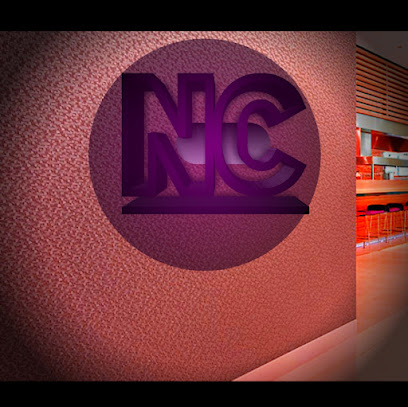
Home Affairs
Explore Home Affairs in Owerri for unique gifts, local crafts, and a taste of Nigerian culture. Perfect for souvenirs and home decor!
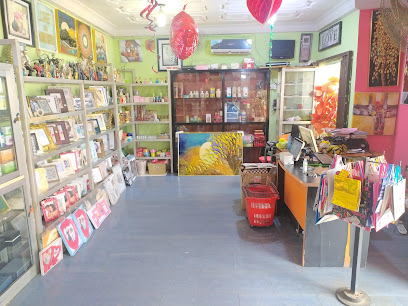
De Ladies Boutique Owerri
Discover the latest trends in women's fashion at De Ladies Boutique in Owerri, where style meets elegance in a boutique experience.
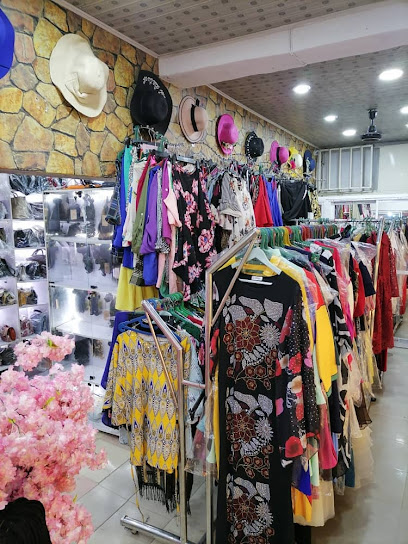
Julimorestores
Shop authentic Nigerian souvenirs and household goods at Julimorestores in Owerri, where every piece carries a story of rich cultural heritage.
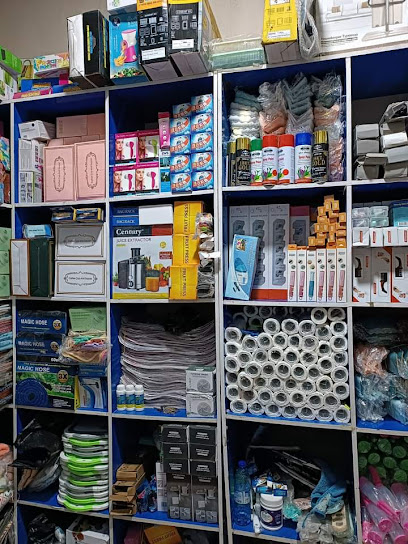
MILIGHT-COLLECTIBLEZ TURKEY WEARS
Explore a diverse range of unique fashion at MILIGHT-COLLECTIBLEZ TURKEY WEARS, Owerri's premier boutique for clothing and accessories.

Designers Hub Owerri
Explore the vibrant Designers Hub Owerri, where fashion meets culture in the heart of New Owerri, Nigeria.
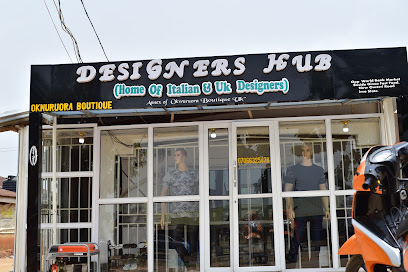
Dscentsfactory
Discover the Essence of Elegance at Dscentsfactory, Owerri's Premier Perfume Store Offering a Unique Selection of Fragrances.
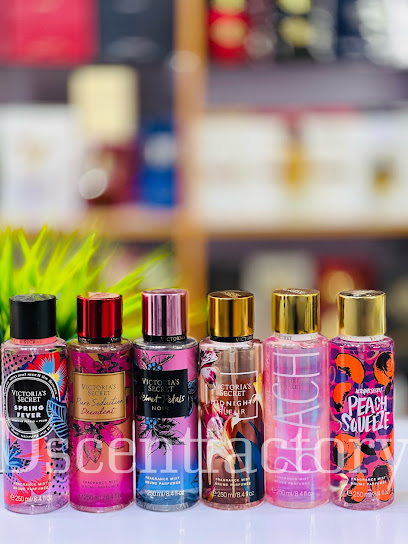
The Unique Home
Explore The Unique Home in Owerri for exquisite furniture and modern electronics that showcase Nigerian craftsmanship and style.

Unique Hairs & Cosmetics World Outlet
Shop at Unique Hairs & Cosmetics World Outlet for a delightful array of beauty products, wigs, jewelry, and more in the heart of Owerri.

Owerri Thrift Store
Explore the vibrant Owerri Thrift Store for unique second-hand clothing and sustainable fashion finds in the heart of Owerri, Nigeria.
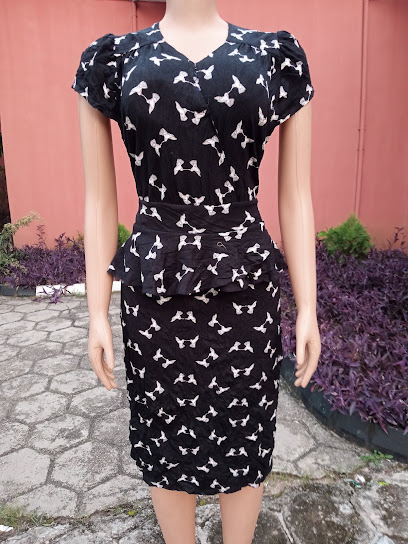
Jenny's gift store shop
Discover unique gifts and local treasures at Jenny's Gift Store in Owerri, a must-visit for cultural souvenirs and artisanal crafts.
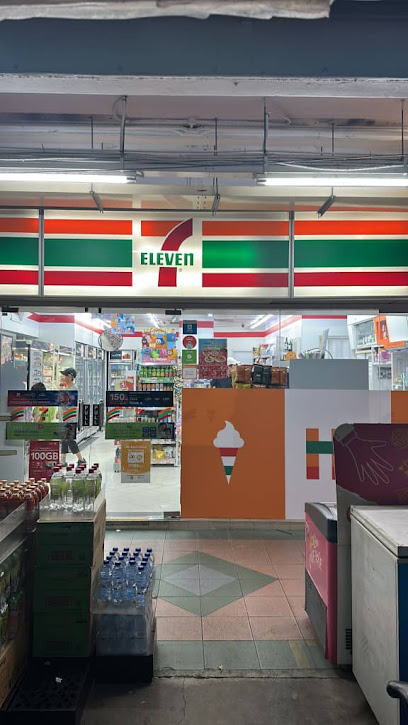
Harmony OK Hub Shop (okirika)
Explore the eclectic world of used clothing at Harmony OK Hub Shop in Owerri, where fashion meets affordability in a vibrant setting.
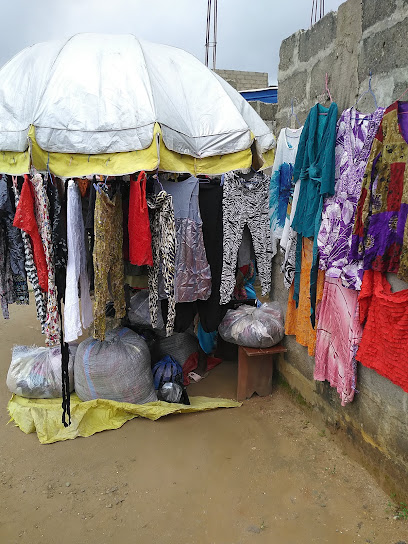
Essential bars & hidden hideouts
Cubana Lounge
Discover the lively ambiance and delectable offerings at Cubana Lounge in Owerri, an unforgettable hotspot for dining and socializing.
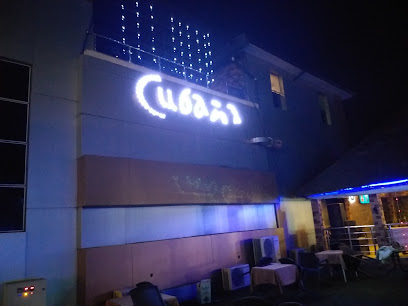
California Owerri
Experience the vibrant nightlife of Owerri at California Owerri, a premier bar offering diverse drinks and lively entertainment in a captivating atmosphere.
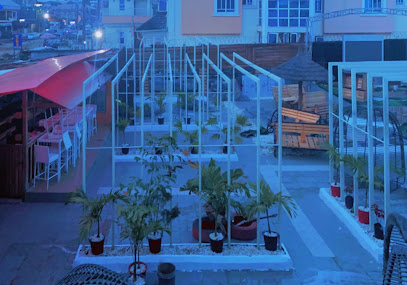
De Avenue Bar & Grill
Experience the vibrant flavors of Nigeria at De Avenue Bar & Grill, where every meal is a celebration of taste and culture.

Checkerz Bar & Grill
Discover the lively vibe, delicious food, and refreshing drinks at Checkerz Bar & Grill, the perfect spot for nightlife in Owerri.
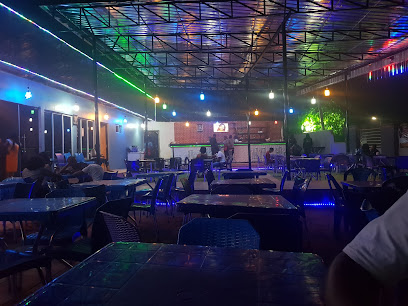
Pillar Spot Bar
Pillar Spot Bar: A lively bar in Owerri offering refreshing drinks, friendly vibes, and a taste of local nightlife.
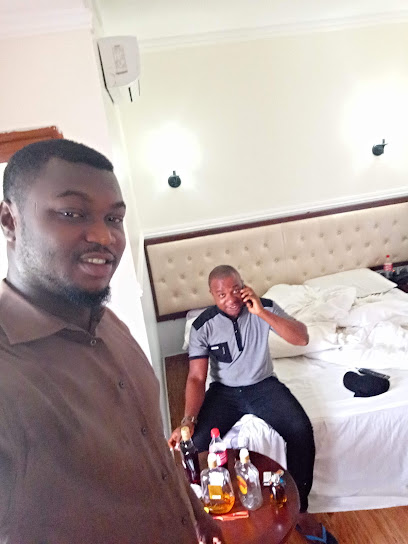
Barz Bar & Grills
Discover the vibrant nightlife at Barz Bar & Grills in Owerri, where delicious food, refreshing drinks, and live entertainment come together.
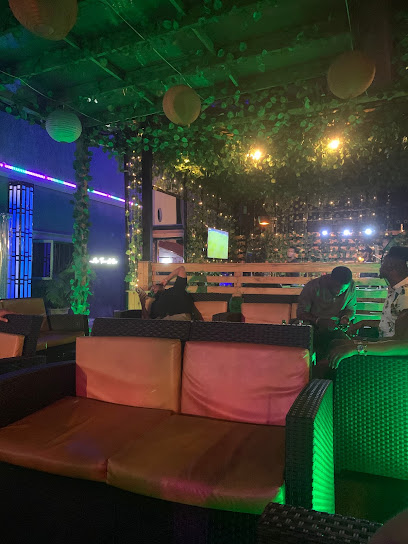
5ive Lounge, Restaurant & Bar
Discover the perfect blend of local cuisine and vibrant nightlife at 5ive Lounge, Restaurant & Bar in Owerri.

Spasso Lounge Owerri
Discover Spasso Lounge in Owerri, where sophistication meets comfort, offering a relaxing atmosphere with delightful beverages and a vibrant nightlife.
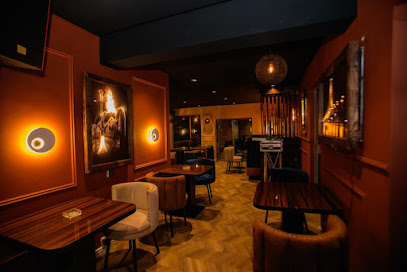
Aces Lounge
Discover the vibrant nightlife at Aces Lounge in Owerri, a lively bar offering refreshing drinks, live music, and a warm atmosphere.
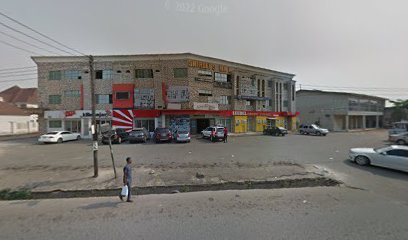
SKIN JAY BUSH BAR
Discover the lively ambiance of Skin Jay Bush Bar in Owerri, where local culture meets refreshing drinks and vibrant nightlife.

Singapore Bar & Grill
Discover the vibrant culinary scene at Singapore Bar & Grill in Owerri, where delicious food meets a lively atmosphere.
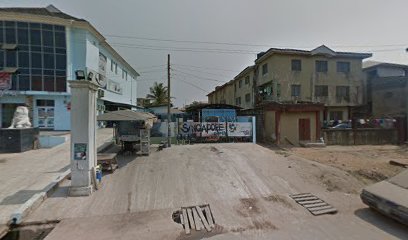
Excited Cafe & Lounge
Discover the vibrant flavors of Excited Cafe & Lounge in Owerri – where great wines meet a lively atmosphere for unforgettable experiences.
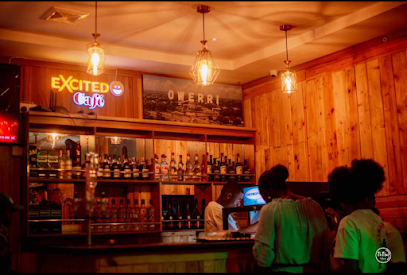
Dotty's bar
Discover the lively atmosphere of Dotty's Bar in Owerri—where vibrant nightlife meets warm hospitality in the heart of Imo State.

The Unusual bartender
Discover a vibrant bar scene at The Unusual Bartender, where creative cocktails and a lively atmosphere await in Owerri.

Local Phrases
-
- HelloNdewo
[nde-wo] - GoodbyeKachifo
[ka-chi-fo] - YesEe
[ee] - NoMba
[m-ba] - Please/You're welcomeBiko
[bi-ko] - Thank youDaalu
[daa-lu] - Excuse me/SorryKedu
[ke-du] - How are you?Kedu ka i mere?
[ke-du ka i me-re] - Fine. And you?Olee. Odi ka i mere?
[o-lee. o-di ka i me-re] - Do you speak English?Onye nwere ike ikwusi bekee?
[on-ye nwe-re i-ke i-kwu-si be-ke-e] - I don't understandAcho m na-agba
[a-cho m na-a-gba]
- HelloNdewo
-
- I'd like to see the menu, pleaseA ga m akwado ihe mere n'akwukwo, biko
[a ga m a-kwa-do i-he me-re n-a-kwu-kwo, bi-ko] - I don't eat meatA puo akwukwo
[a pu-o a-kwu-kwo] - Cheers!Ndeewo!
[nde-wo] - I would like to pay, pleaseA ga m gbuo, biko
[a ga m gbuo, bi-ko]
- I'd like to see the menu, pleaseA ga m akwado ihe mere n'akwukwo, biko
-
- Help!Ndu!
[ndu] - Go away!Bia kwanu!
[bi-a kwa-nu] - Call the Police!Kpako ndi ocha!
[kpa-ko ndi o-cha] - Call a doctor!Kpako onye isi ocha!
[kpa-ko on-ye i-si o-cha] - I'm lostA di m ari
[a di m a-ri] - I'm illA dighi ike
[a di-ghi i-ke]
- Help!Ndu!
-
- I'd like to buy...A ga m gbuo...
[a ga m gbuo...] - I'm just lookingA na enye ihe m na-akpo
[a na en-ye i-he m na-ak-po] - How much is it?Ozi gini onye?
[o-zi gi-ni on-ye] - That's too expensiveOzi ntoo gini
[o-zi n-too gi-ni] - Can you lower the price?Onye nwere ike gbuo ozi?
[on-ye nwe-re i-ke gbuo o-zi]
- I'd like to buy...A ga m gbuo...
-
- What time is it?Kedu oge bu?
[ke-du o-ge bu] - It's one o'clockOge di otu
[o-ge di o-tu] - Half past (10)Oge di iri na otu
[o-ge di i-ri na o-tu] - MorningUtutu
[u-tu-tu] - AfternoonEhihie
[e-hi-hie] - EveningOsa
[o-sa] - YesterdayEchi
[e-chi] - TodayOnwa
[on-wa] - TomorrowOchia
[o-chi-a] - 1Otu
[o-tu] - 2Abuo
[a-buo] - 3Ato
[a-to] - 4Ano
[a-no] - 5Ise
[i-se] - 6Isii
[i-sii] - 7Asaa
[a-saa] - 8Asato
[a-sa-to] - 9Itoolu
[i-to-o-lu] - 10Iri
[i-ri]
- What time is it?Kedu oge bu?
-
- Where's a/the...?Ebee ka...
[e-bee ka...] - What's the address?Kedu adiresi bu?
[ke-du a-di-re-si bu] - Can you show me (on the map)?Onye nwere ike nye m ihe mere (na ozi)?
[on-ye nwe-re i-ke nye m i-he me-re (na o-zi)] - When's the next (bus)?Olee ihe ozo kpomkpu?
[o-lee i-he o-zo k-pom-kpu] - A ticket (to ....)Echi ebe...
[e-chi e-be...]
- Where's a/the...?Ebee ka...
History of Owerri
-
Owerri, the capital city of Imo State in southeastern Nigeria, has a rich history that dates back centuries. The area was originally inhabited by the Igbo people, who are known for their complex societal structures and vibrant cultures. Archaeological evidence suggests that the region has been settled since ancient times, with early communities engaged in farming, trade, and craftsmanship.
-
During the late 19th century, Owerri became a focal point for British colonial administration. The city was officially established as a colonial administrative center in 1901. This period saw the construction of key infrastructures such as roads, schools, and hospitals, which laid the foundation for modern Owerri. The introduction of Christianity also had a significant impact, with several mission schools and churches being established.
-
The Nigerian Civil War, also known as the Biafran War (1967-1970), had a profound impact on Owerri. The city was a strategic location and witnessed several military engagements. It served as one of the last strongholds of the Biafran forces before the eventual surrender. The war caused significant devastation, but the resilience and spirit of the people of Owerri played a crucial role in the city's recovery and rebuilding efforts post-war.
-
Following the end of the Nigerian Civil War, Owerri underwent extensive reconstruction. Efforts were made to rebuild the city's infrastructure and revitalize its economy. This period saw the establishment of educational institutions like the Federal University of Technology Owerri (FUTO) and the development of new residential and commercial areas. The city gradually transformed into a hub of education, commerce, and culture.
-
Owerri is a city deeply rooted in Igbo culture and traditions. The city hosts several annual festivals and cultural events that attract visitors from far and wide. One of the most notable is the 'Iri Ji' (New Yam Festival), which celebrates the harvest and is marked by elaborate ceremonies, traditional dances, and feasting. The 'Oru Owerri' festival is another significant event that showcases the rich cultural heritage of the Owerri people, featuring masquerades, music, and traditional rites.
-
Today, Owerri is a bustling metropolis that beautifully blends tradition and modernity. The city is renowned for its vibrant nightlife, with numerous hotels, restaurants, and entertainment venues. Despite its rapid urbanization, Owerri has managed to preserve its cultural identity and historical landmarks, such as the Mbari Cultural and Art Center, which stands as a testament to the city's artistic heritage. Modern Owerri continues to thrive as a center for education, commerce, and tourism.
Owerri Essentials
-
Owerri is accessible via Sam Mbakwe International Cargo Airport, which is located approximately 23 kilometers from the city center. The airport serves both domestic and limited international flights. From major Nigerian cities like Lagos, Abuja, and Port Harcourt, you can catch a direct flight to Owerri. Alternatively, you can arrive by road; Owerri is well-connected by major highways, making it accessible by bus or private vehicle from neighboring cities.
-
Within Owerri, transportation options include taxis, buses, and motorcycle taxis (locally known as 'okada'). Taxis are widely available and can be hailed on the street or booked via ride-hailing apps. Buses and minibuses operate on fixed routes and are a cost-effective way to get around, though they can be crowded. Motorcycle taxis are a quick way to navigate traffic but may not be the safest option. Car rentals are also available for those who prefer to drive themselves.
-
The official currency in Nigeria is the Nigerian Naira (NGN). Credit and debit cards are accepted in larger hotels, restaurants, and shopping centers, but it is advisable to carry cash for smaller establishments and local markets. ATMs are available throughout Owerri, though it is wise to withdraw enough cash in one go to avoid multiple transaction fees.
-
Owerri is generally a safe city for tourists, but it is important to take standard precautions. Avoid isolated areas, especially at night, and be cautious with your belongings in crowded places. Areas like Douglas Road and Wetheral Road are bustling with activity but may have higher instances of petty crime such as pickpocketing. Always use trusted transportation options and avoid displaying wealth.
-
In case of an emergency, dial 112 for general emergency services. The city has several hospitals and medical facilities such as the Federal Medical Center Owerri. It is highly recommended to have travel insurance that covers medical emergencies. For minor health issues, pharmacies are available and well-stocked.
-
Fashion: Do dress modestly, especially when visiting religious or cultural sites. Avoid wearing flashy jewelry. Religion: Do respect religious customs and practices. Remove your shoes before entering religious buildings. Public Transport: Do be respectful and patient when using public transport. Avoid loud conversations. Greetings: Do greet people with a handshake and a smile. It is polite to greet elders first. Eating & Drinking: Do try local foods and drinks. Accept food and drink graciously when offered. Don’t eat or drink in public during religious fasting periods.
-
To experience Owerri like a local, visit the Eke Ukwu Owerri Market for a vibrant shopping experience. Enjoy local dishes such as 'ofe owerri' (Owerri soup) at traditional restaurants. Engage with locals; they are often warm and welcoming. Don't miss the Mbari Cultural and Art Center to learn about local art and history. For nightlife, check out the various lounges and bars along Wetheral Road.
Trending Landmark in Owerri
-
Rockview Hotel Owerri
-
Dan Anyiam Stadium Owerri
-
Old English Bar & Grills
-
Titanic View Hotel
-
Mimi Place
-
Icy Groove Creamery (iGroove)
-
The Hive
-
Hotel Ibis Royale, Owerri
-
Toprate Luxury Hotel
-
Akachi Monument
-
Chief Uwunna Recreational Park
-
DREAM WORLD AMUSEMENT PARK
-
Satiate Restaurant Owerri
-
De Majestic Gardens Hotel Owerri
-
Landmark Event Center Owerri
Nearby Cities to Owerri
-
Things To Do in Port Harcourt
-
Things To Do in Onitsha
-
Things To Do in Asaba
-
Things To Do in Uyo
-
Things To Do in Enugu
-
Things To Do in Warri
-
Things To Do in Calabar
-
Things To Do in Benin City
-
Things To Do in Mamfe
-
Things To Do in Malabo
-
Things To Do in Luba
-
Things To Do in Buea
-
Things To Do in Limbe
-
Things To Do in Tiko
-
Things To Do in Nkongsamba








